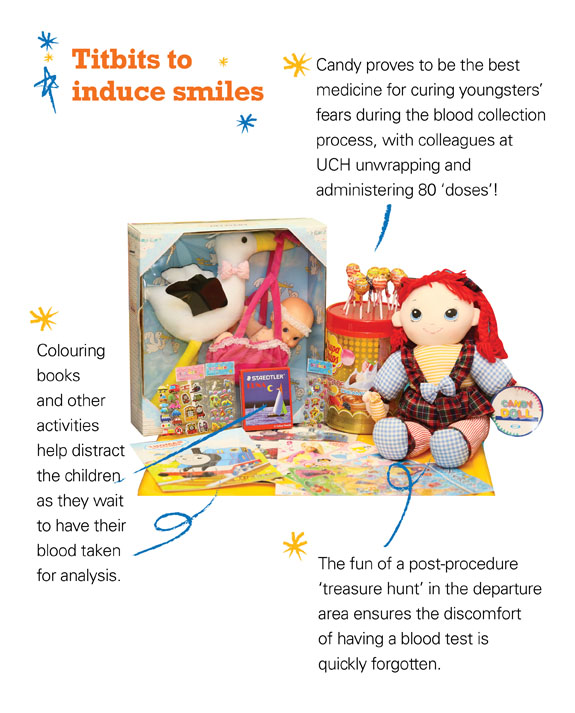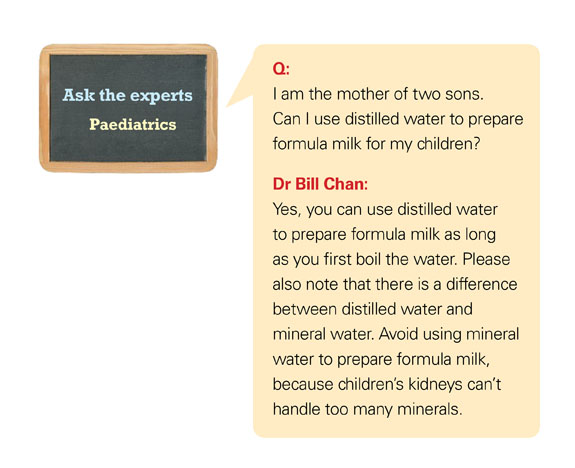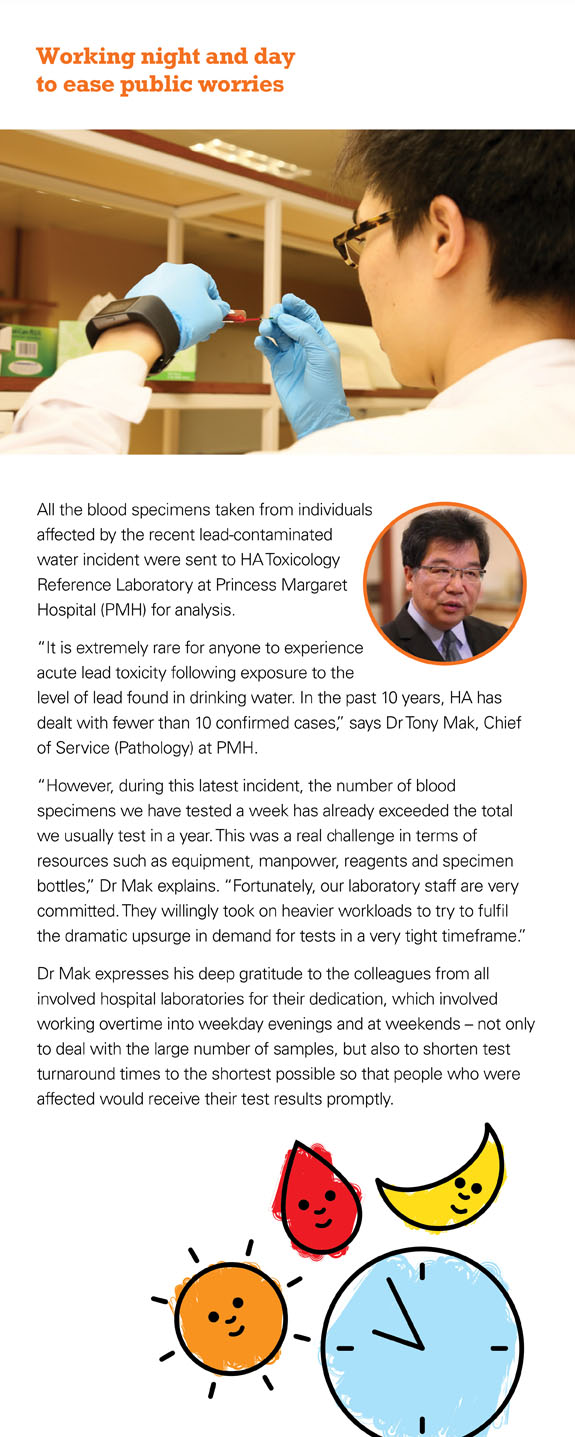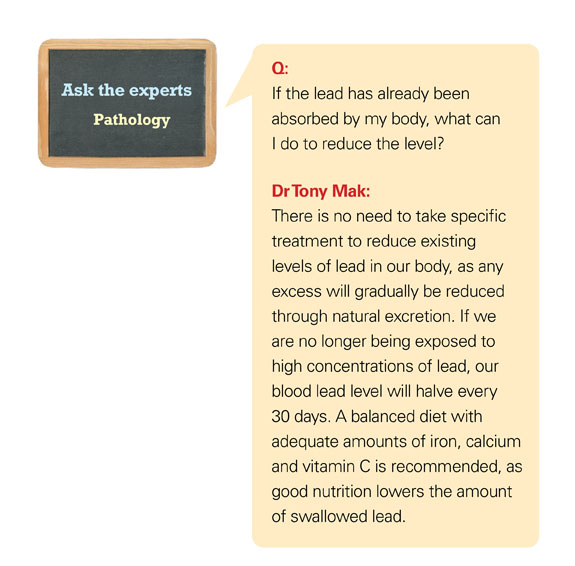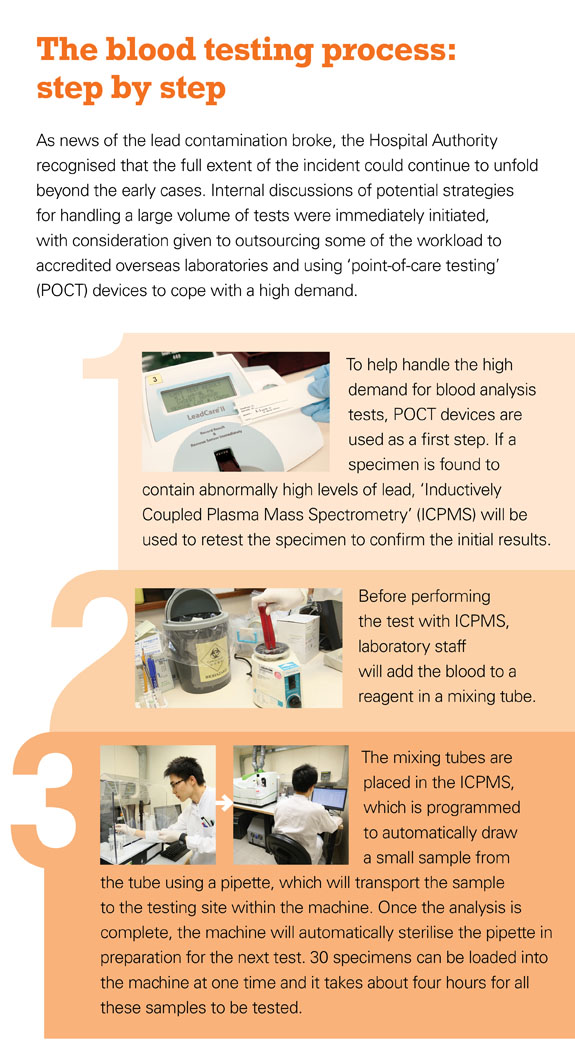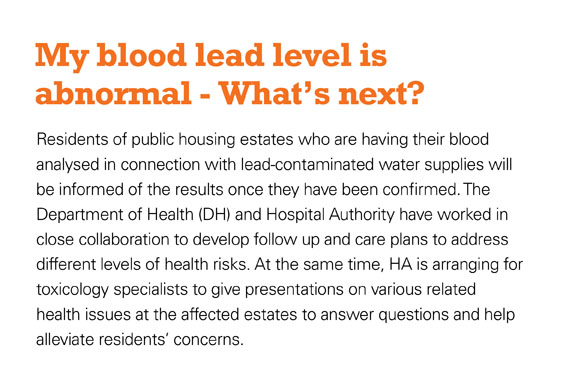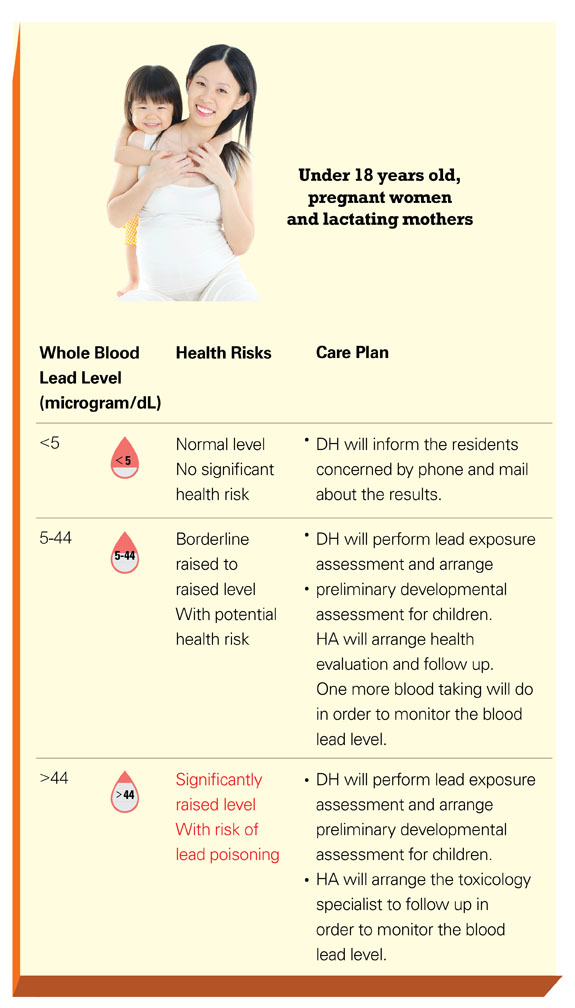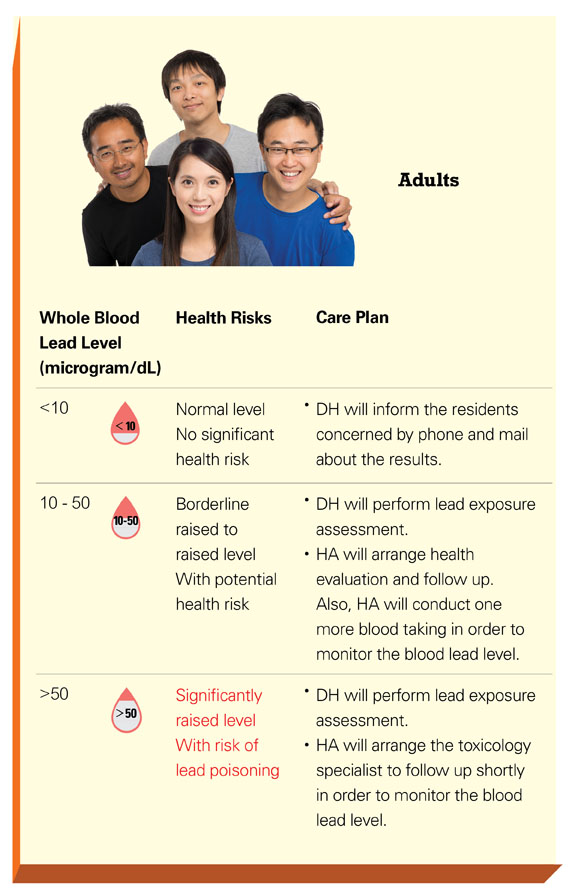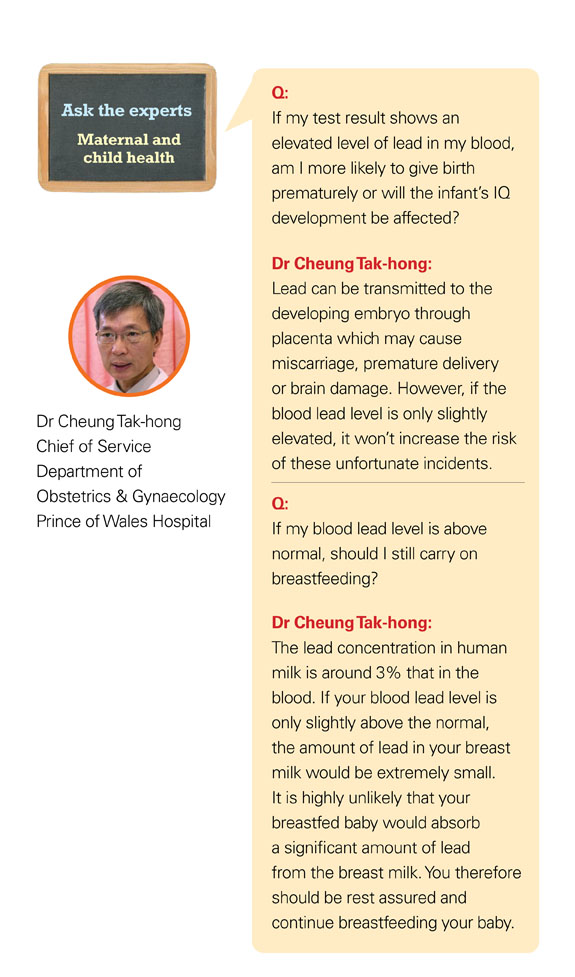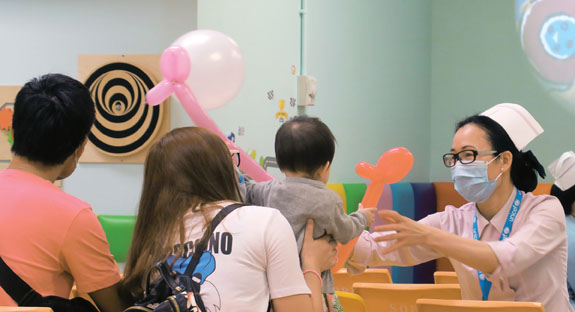
Compassionate care behind lead worries
The recent news that lead-contaminated water supplies had been discovered at several local housing estates and schools caused widespread public concern. As the primary guardian of health in Hong Kong, the Hospital Authority was immediately hard at work providing blood tests and related follow-up for anyone potentially affected by the contamination.
As the first hospital to begin carrying out tests, United Christian Hospital (UCH) provided an example of how to efficiently handle an unexpected increase in workload while upholding a patient-centred approach to care by finding ways to reduce the fears and anxieties of children and their parents. The hospital’s response to the crisis has been highly praised by the local community.
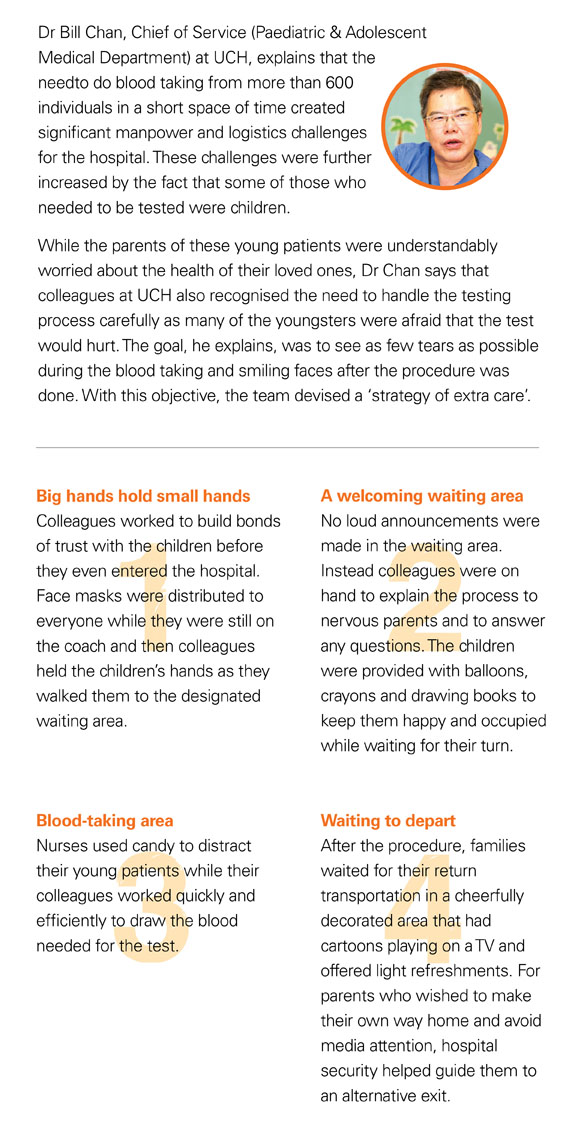
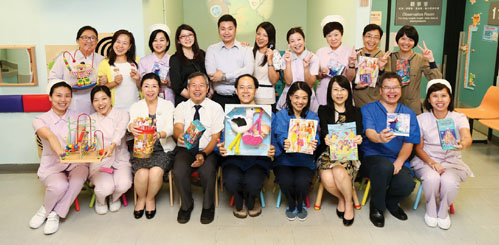
The many acts of selflessness and dedication demonstrated by UCH colleagues during the contaminated water episode include several members of staff voluntarily coming in from annual or maternity leave to help out with the testing.
HCA: “Success is the only option”
Despite 10 years’ experience in collecting blood from patients, UCH Health Care Assistant (SOPD) Loo Tsui-ping says she had never before experienced such a high level of pressure when doing her job. “It is very difficult to take blood from children as their veins are often as thin as fishing line,” she explains. “Luckily, my colleagues did an excellent job in using candy to distract the children while I focused on drawing the necessary blood sample as quickly and as painlessly as possible.”


